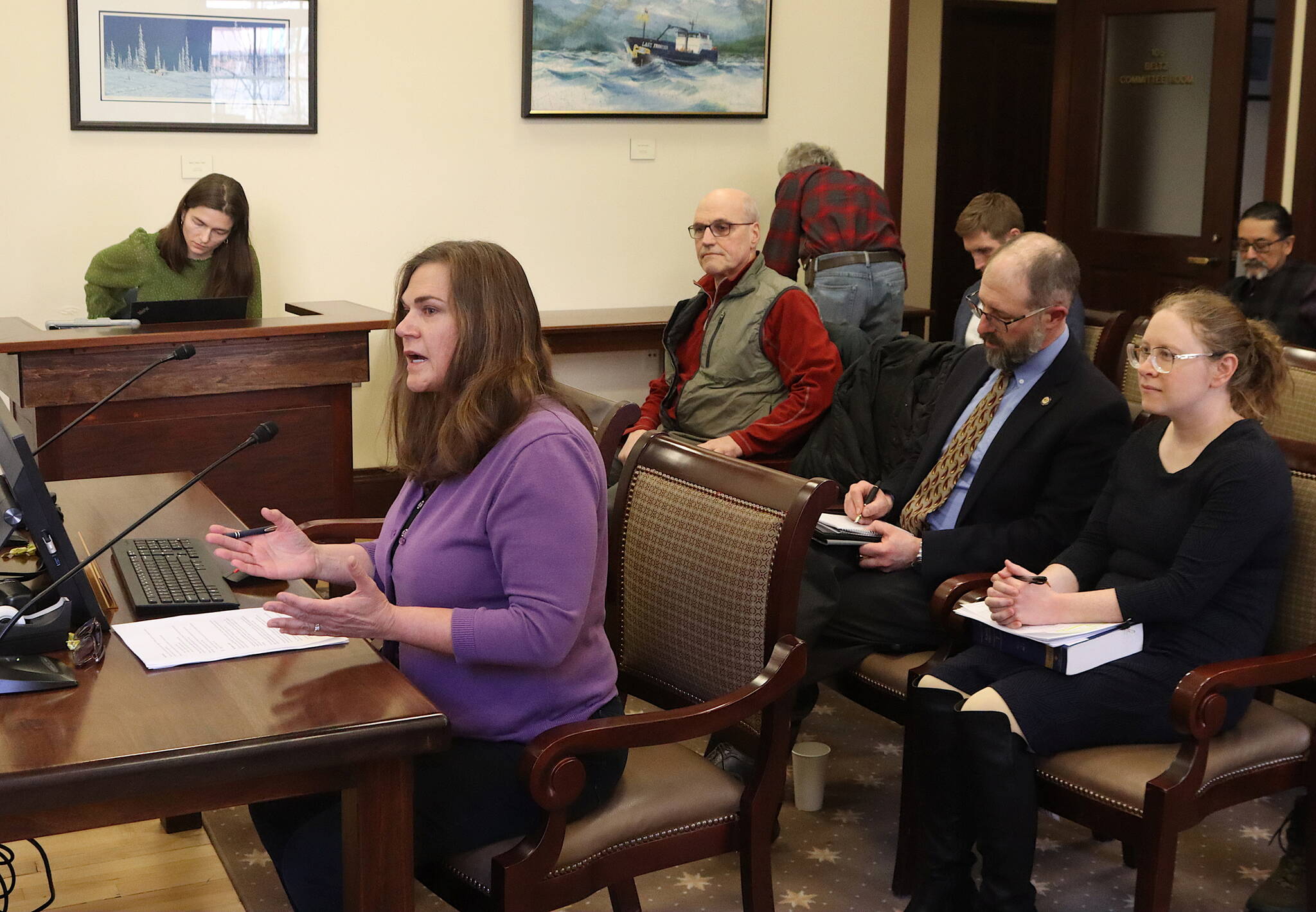Establishing baseline requirements for municipal property tax assessments, which some area residents say is needed to rein in excessive and inconsistent valuations, is proposed in a bill by a Juneau state lawmaker that got its first hearing Thursday.
Senate Bill 242 by Sen. Jesse Kiehl, a Democrat, is what he called “a fairness and transparency bill” in presenting it to the Senate Community and Regional Affairs Committee. Among the key provisions are establishing minimum qualification standards for assessors, having tax appeals heard by default by an appointed board of equalization instead of local elected officials and preventing a municipality from raising an assessed value during an appeal.
“This is a bill that maintains the important principle of local control and local government, but sets some basic rules of the road and a little bit of balance for property owners who disagree with the tax assessor on what their property is worth,” he said. “Citizens are entitled to a fair shake and a fair hearing when they disagree with local government.”
It does not appear the bill would make any substantive changes to Juneau’s assessment process, said Angie Flick, finance director for the City and Borough of Juneau, in an interview Thursday.
She said the city already uses standards defined by the International Association of Assessing Officers that are required in the bill. The bill also requires a local assessor “to have or be supervised by someone who has a level 3 certification from the Alaska Association of Assessing Officers,” while Flick said Juneau’s current assessor has a level 5 certification. Furthermore, the bill allows municipalities to adopt ordinances imposing their own standards.
Several Southeast Alaska residents testifying during Thursday’s hearing described what they called unfair and possible illegal increases in their assessments in recent years — with some stating that while they support Kiehl’s bill, it doesn’t go far enough.
Shannon Greene, a Juneau resident, said the assessed value of her property increased 50.5% in 2023, and when she reviewed the assessed values of 30 other homes in her neighborhood the values rose between 7.7% and 39.7%. She said the increase on her property was reduced to 28.05% upon appeal, but wants limits placed on increases.
“I felt that it was unequal and improper to have the different percentage ranges that I didn’t understand,” she said. “We sorely need controls on increased limits and mill rate limits because otherwise I feel like it wasn’t being assessed in a fair manner. We understand that we’re paying assessments, but the wide range of numbers just didn’t make sense.”
Flick acknowledged there can be large variances in assessments within neighborhoods, but “those variations definitely happen for reasons and there are a lot of reasons that things can happen.” She said caution should also be exercised if limits are being considered for how much assessments or property taxes can be increased, which has occurred in other states with mixed results.
“They’ve got their good sides and bad sides,” she said, “As with anything I would certainly hope that there’s a look at the kind of unintended consequences of making those choices.”
Invited by the committee to testify was Brenda Josephson, a resident of Haines, where a heated controversy last year involving a dramatic rise in many residents’ property assessments resulted in that borough’s Assembly ending its contract with assessor Michael Dahle — who previously worked as an assessor in Juneau — after nearly 600 residents signed a petition calling for his removal.
Josephson said Dahle, who was uncertified, “enacted a new exotic hybrid mass appraisal valuation system” intended to “equalize property values across large areas of the community.” However, she said the new method “did not give due weight to the physical and functional obsolescence of the buildings, and it also did not consider the desirability of some of the view lots and the homes that were more valuable to the second-homeowner market.”
“It appeared to create for our community a regressive taxation system where older buildings, and medium- and lower-valued properties were assessed in excess of their full and true market value, and higher-end properties were actually being assessed lower than fair market value,” she said. “This had the unfortunate situation of transferring a burden of taxation to those in our community that could least afford to pay for it.”
Kiehl, in an interview after the committee hearing, said his interest in the bill originated when the situation in Haines was brought to his attention.
“As we started doing our statewide research we found a wide variety of approaches around the state,” he said. If the bill becomes law “there are some municipalities in the state that will change little or nothing in how they do assessments and appeals. But there are some who I think will make several changes.”
The bill — which is co-sponsored by the three Republican legislators who don’t belong to the 17-member bipartisan Senate majority caucus — was held by the committee, with Sen. Forrest Dunbar, an Anchorage Democrat, stating the bill and possible amendments will be considered at a future date. A companion bill, House Bill 347, sponsored by Rep. Julie Coulombe, an Anchorage Republican, has not yet been scheduled for a hearing.
• Contact Mark Sabbatini at mark.sabbatini@juneauempire.com or (907) 957-2306.

